In January this year, Chengdu launched the "Clean, Excellent, Bright and Beautiful" special action to improve the urban and rural living environment. The operation and deployment of the first batch of 1,000 "Wenjiang-made" hydrogen-powered shared two-wheelers launched by Hydrogen Air Technology and Qingbai Travel are closely coordinated with the city's special planning. During the operation and maintenance process, the vehicles are parked in the planned road locations in a standardized manner to ensure the order of the city. In areas such as Guanghua Business District and Heshenghui, hydrogen-powered shared two-wheelers are neatly arranged in the white-lined area, becoming a green landscape in the city.
Wenjiang District official report: "Clean, Excellent, Bright and Beautiful" is in progress! Wenjiang's urban and rural living environment "advances" →
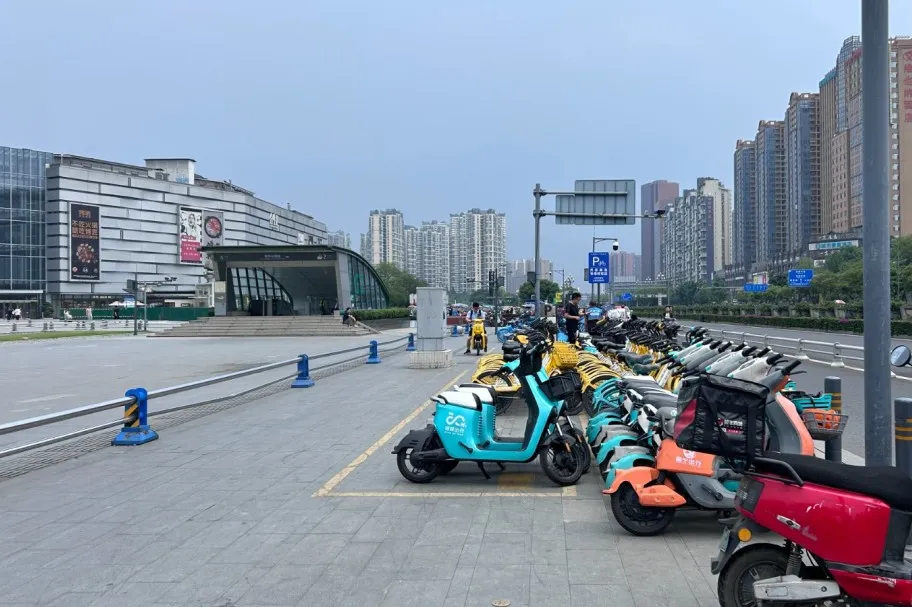
Image from: Jinwenjiang official WeChat public account
As of June this year, the hydrogen-powered shared two-wheeled vehicles made in Wenjiang have been in operation in Wenjiang District for more than four months, providing short-distance travel services for nearly 500,000 Wenjiang citizens, with a cumulative safe driving of more than 1 million kilometers and a failure rate as low as about 2‰. With its advantages such as 80km ultra-long battery life, 10S battery replacement, stable operation in low and high temperature environments in late winter and early summer, and low failure rate, it has become a zero-carbon travel partner trusted by Wenjiang residents in daily life.
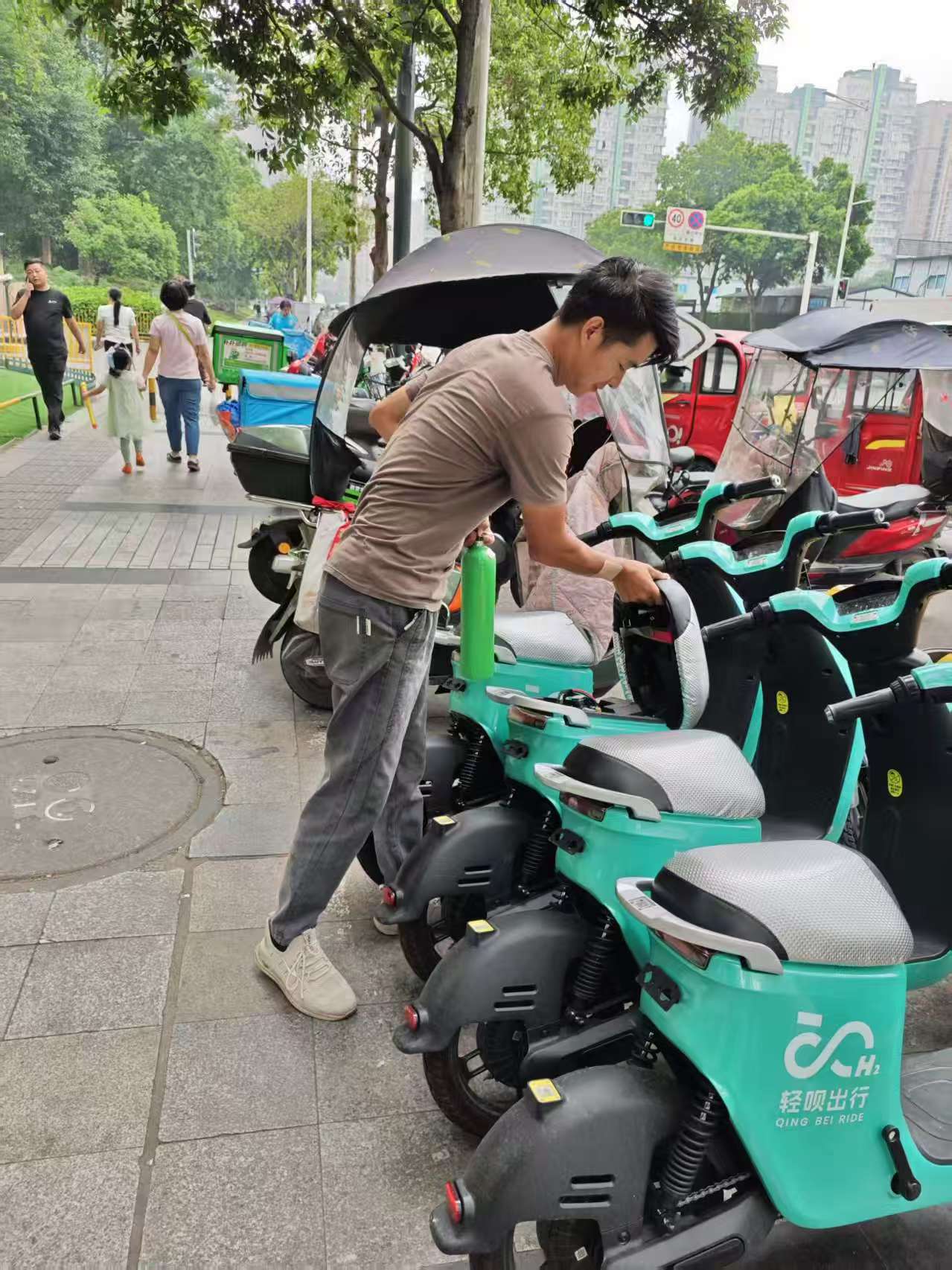
Qingbai Travel enables two-wheeled vehicles to integrate into the urban appearance of Wenjiang District, making it more beautiful and orderly, and the hydrogen power system of Hydrogen Craft protects the residents of Wenjiang District from traveling in an "environmentally friendly and efficient" way. Hydrogen Craft's hydrogen fuel cells are the main power source for hydrogen-electric two-wheeled vehicles. The low-temperature electrochemical reaction products of hydrogen and oxygen are electricity and water, and the battery components are carbon and fully recyclable precious metals, avoiding the serious pollution problems caused by lithium battery operation and maintenance recycling, allowing travel to truly achieve net zero carbon emissions.
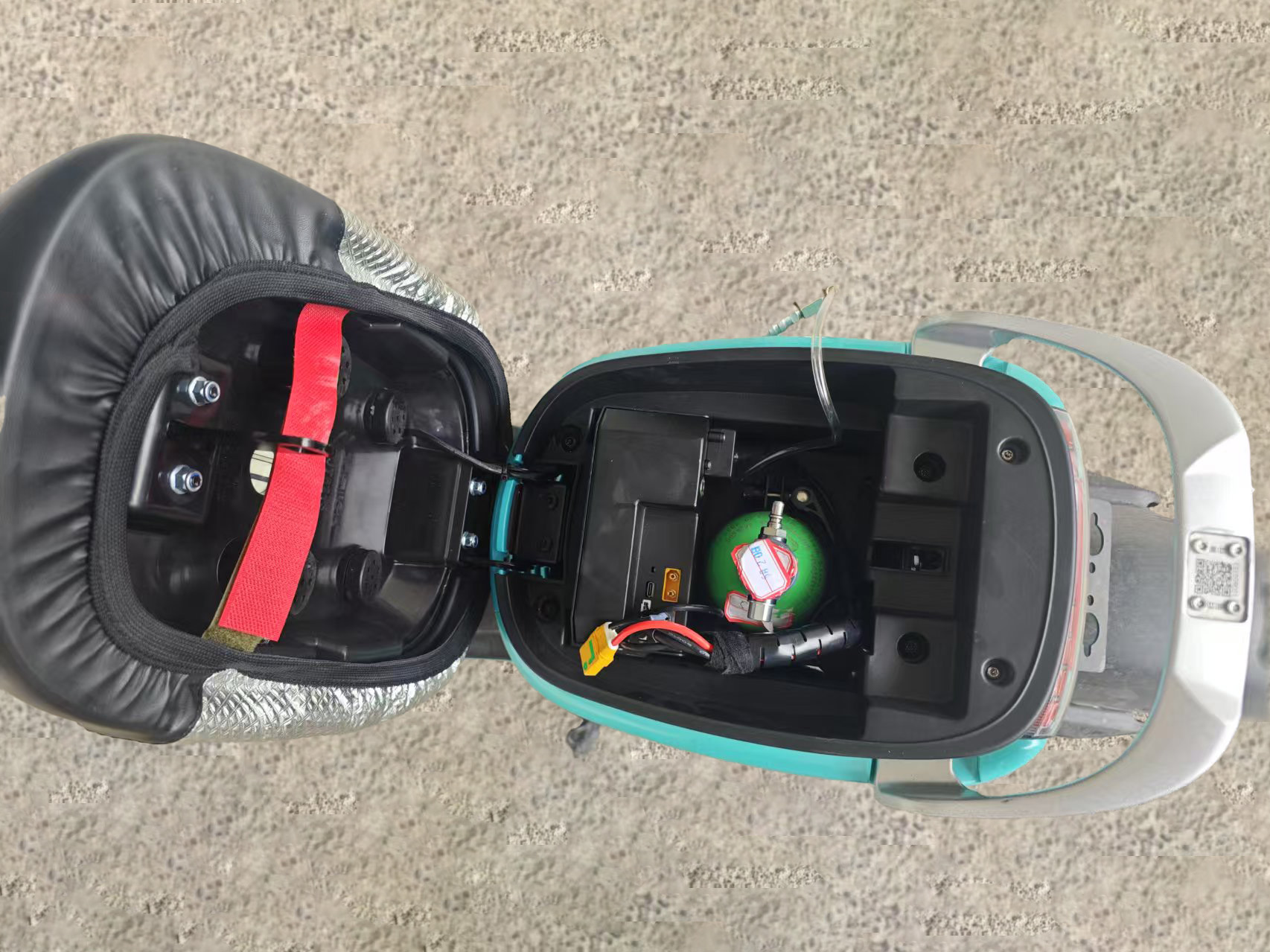
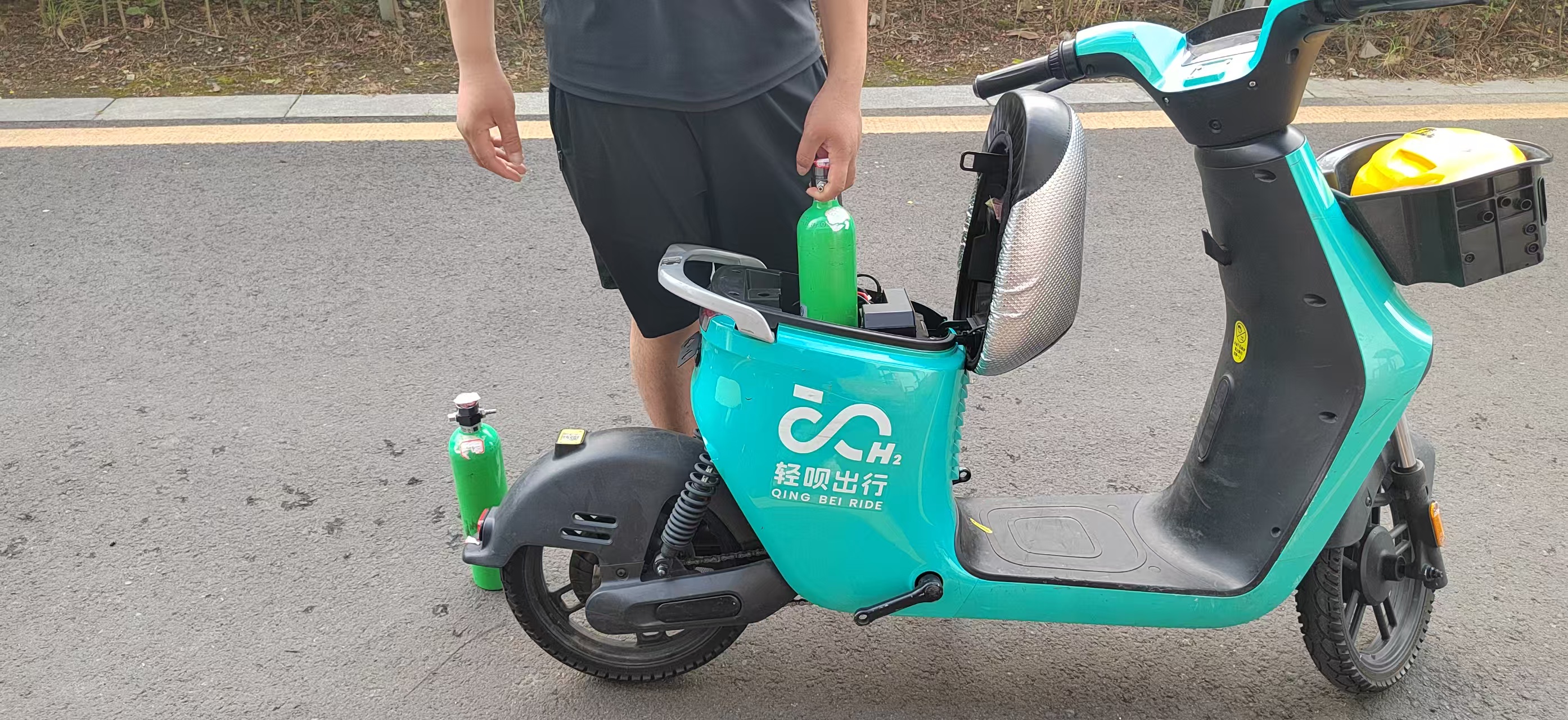
With longer battery life, 10-second bottle change, and no waiting, hydrogen-powered shared two-wheelers effectively improve residents' daily travel experience. Due to the technical characteristics of hydrogen fuel cells, hydrogen-powered shared two-wheelers can achieve more than twice the battery life of lithium batteries, and can operate stably in a wide temperature range of -40°C to 50°C. Changing air means changing electricity. In addition, in extreme cases, hydrogen, which is only one-fourteenth the density of air, will escape rapidly and straightly upward at a speed of 22 meters per second in open space, avoiding the risk of lithium battery combustion or explosion, and fully meeting the core needs of residents for long-distance riding, travel in hot summer or cold winter, rapid operation and maintenance during peak hours, safety and efficiency, etc.
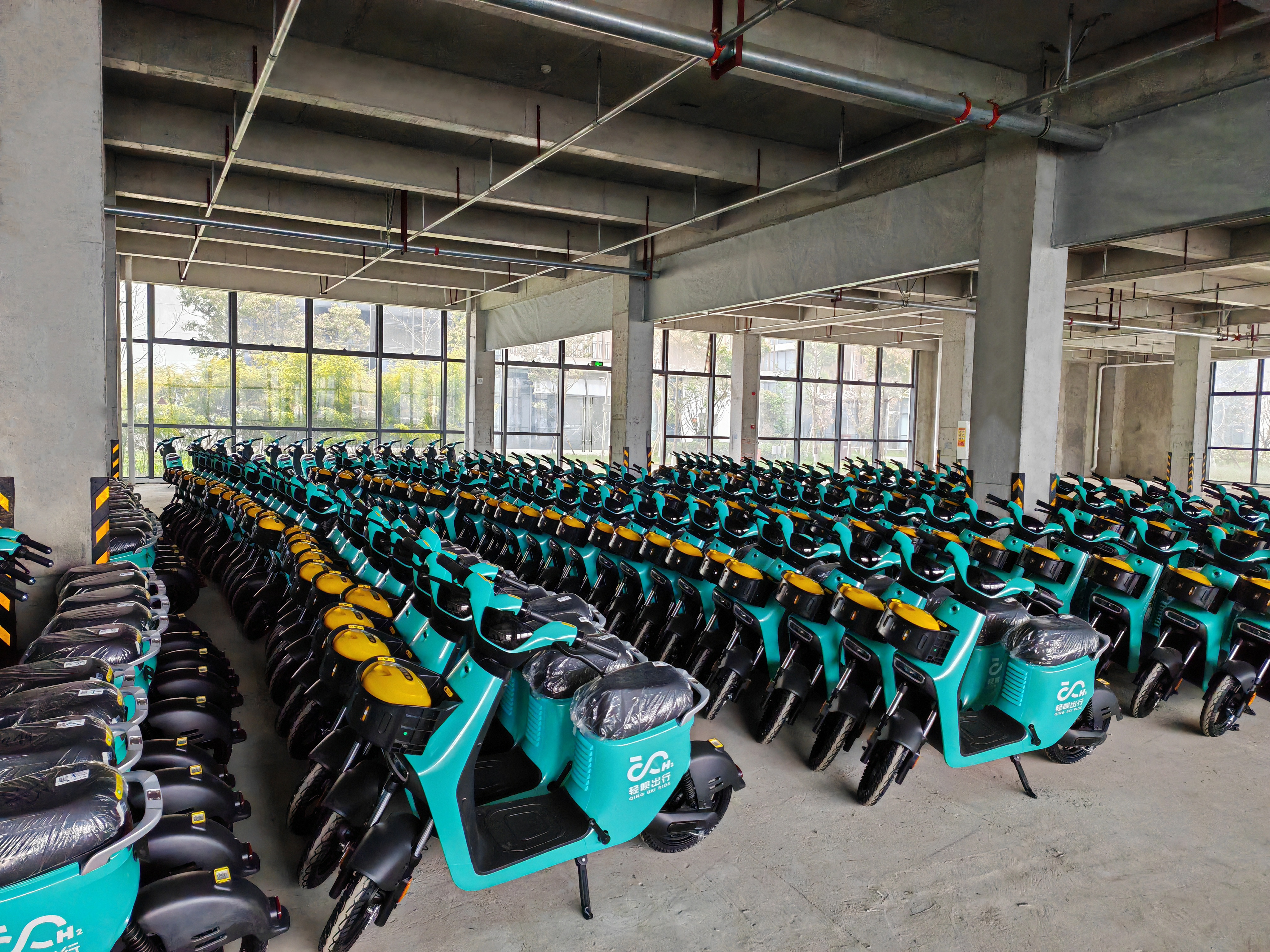
By the end of 2025, the total number of hydrogen-powered shared two-wheelers built in Wenjiang is expected to reach 5,000, and 10,000 are planned to be put into service in 2026. The 20MW fuel cell production base of Hydrogen Craft in Shanghai can meet the mass production and shipment of batteries for 40,000 hydrogen-powered small vehicles, and the 20,000-set two-wheeler hydrogen power pack production base in Chengdu can fully meet the future market shipment demand.